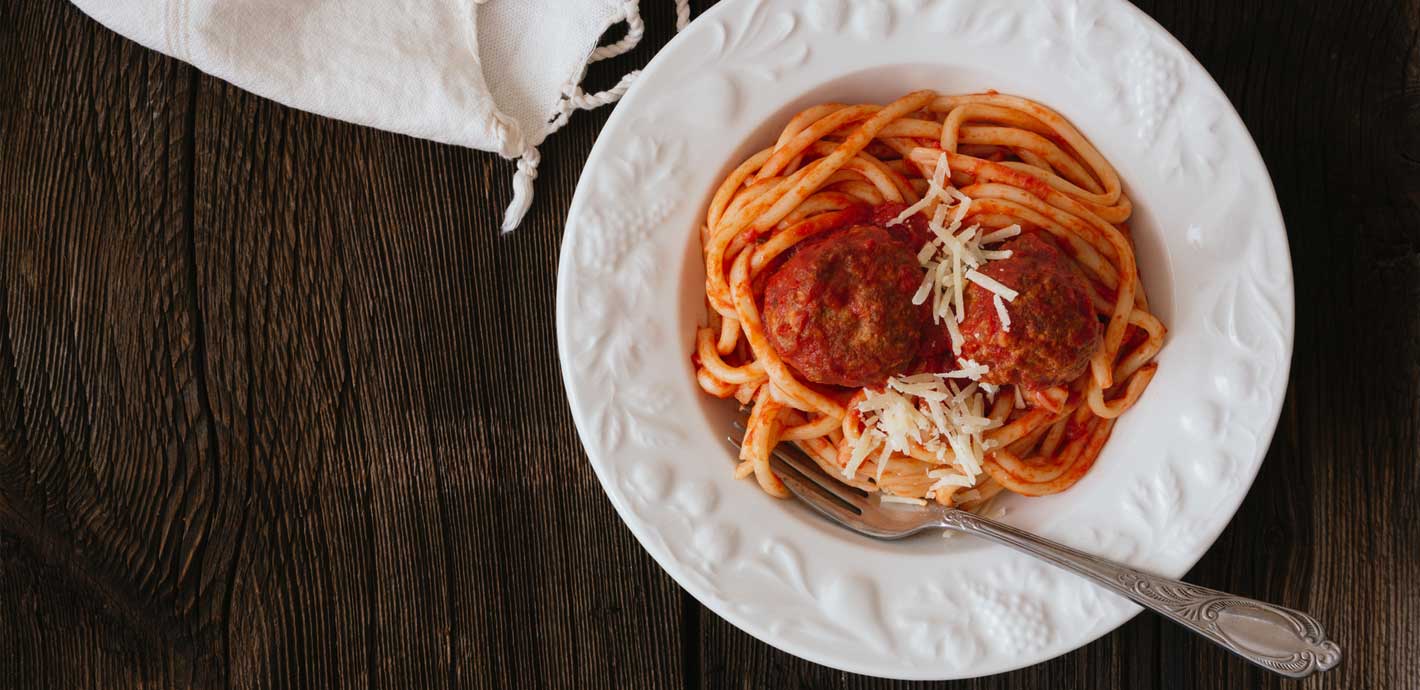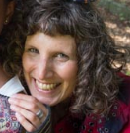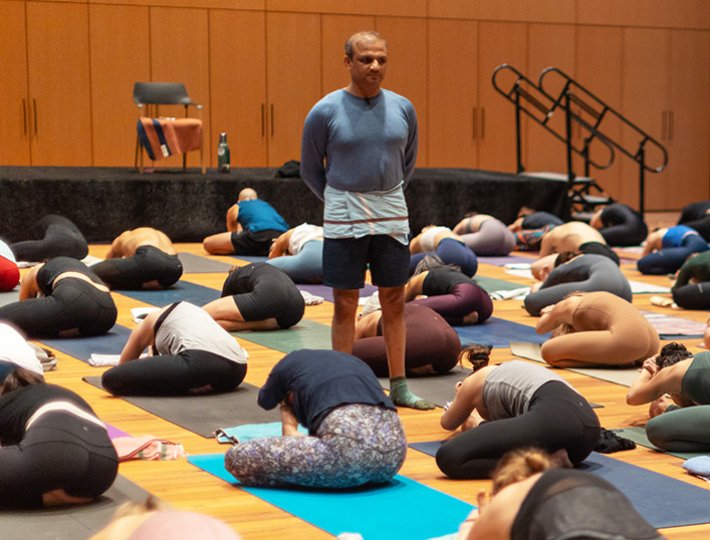Not long ago, I was in the supermarket, with spaghetti and meatballs on my mind. This was not a health-food store, or a local co-op, but rather a major East Coast chain, so I approached the meat cooler without much hope of finding anything responsibly farmed. But there, amid the rows of raw flesh wrapped in plastic, I found a package of ground turkey that read, “Humanely raised on family farms in a stress-free environment.”
I felt a small but perceptible weight of guilt lift from my shoulders. I eat meat, but I don’t feel that great about it. I was a vegetarian for 15 years, because it felt right in both mind and body. When I was diagnosed with soy and dairy sensitivities and had to put my beloved tofu and cheese aside, I found I craved fish and fowl. Homemade fried chicken was my first step back into an omnivore diet (and what a crunchy, tender step it was). Enjoyment aside, I believe eating animal protein is essential for my health and physical comfort at this point in my life.
Yet, I can’t completely reconcile it. Although I always choose to eat animals that, like those turkeys, have lived and died as well as possible considering the circumstances (and are raised in a way that minimizes their impact on the environment), I can’t get past the fact that I am contributing, in a small but significant way, to the untimely demise of a living creature. Eating meat feels contrary to the principle of ahimsa, the practice of nonviolence toward all beings—a primary tenet of Buddhism, Hinduism, and Jainism.
As detailed in the ancient yoga texts, the yamas are basic principles of conduct meant to lead the practitioner toward inner freedom. Ahisma is understood as avoiding harm to any creature by thought, word, or deed. Because animals’ consciousness is considered more evolved than plants’, some choose to follow a vegetarian diet to minimize suffering in the world. As Jonathan Safran Foer puts it in his book Eating Animals, “One of the greatest opportunities to live our values—or betray them—lies in the food we put on our plates.”
Short of returning to a vegetarian diet, what can I do to find more ease with this moral quandary?
“There is a conscious way to eat animal foods,” says Annie B. Kay, an integrative dietitian, lead nutritionist at Kripalu Center for Yoga & Health, and author of the book Every Bite is Divine. “When eating flesh, it requires a level of honoring and gratitude.”
Kay calls herself a “flexitarian”—she was vegan for many years but now eats a plant-centric diet, with eggs, a little dairy, and occasionally meat. “I’m a great fan of high-quality eggs from chickens with names, who are raised in friends’ yards,” she says.
Her rule of thumb is one serving of animal protein a day; she says we don’t need much of it to get the particular nutrients it offers, including omega 3s and certain minerals that are tough to find in a vegan diet. Kay says what kind of meat and eggs you buy (organic, local, free-range, grass-fed, etc.) is essential—for the planet and for your conscience, but also because eating animals that have suffered is not only less ethical, it’s also not as good for you. “When turkeys are slaughtered humanely, there’s a different nutritional profile than when they’re conventionally slaughtered,” she says.
Csilla Bischoff, a health coach trained at the Institute for Integrative Nutrition, is a native of Hungary, and grew up eating “meat and dairy, vegetables that were mostly cooked to death, and lots of bread and freshly baked pastries,” she says. She came to the United States when she was 24, and the controversial talk radio host and alternative-medicine advocate Gary Null inspired her to become a vegetarian. She says that diet worked well for her for seven years, when she began to feel the need for more animal protein. “We have to listen to our body and see what messages we’re getting,” she says. (Her nutrition philosophy emphasizes what she calls bio-individuality—choosing what you eat depending on your unique needs, lifestyle, preferences, and ancestral background.)
Bischoff maintains that she’s never struggled with questions of right and wrong around eating meat, but she has many clients who do. “There are some vegans and vegetarians who could benefit from adding in animal protein, but, for ethical reasons, they’re not willing to consider eating even a little bit of flesh,” she says.
For Bischoff, eating meat is simply part of the cycle of life. “We humans are part of this web or ecosystem—animals, plants, fish, even bacteria, we’re all part of this,” she says. “It’s natural to participate in this web by eating other animals.” Or, as Kay puts it, “Somebody gets eaten, and that’s something we all have to come to terms with.” And Kay’s not just talking about animals: “If you think plants aren’t operating on a level of having emotions and consciousness, think again,” she says. “Just in the last few years, there have been conferences on plant neurology and plant communication.”
When you think of it like that, we don’t have much choice in the matter—in order to live, we must end other lives. That idea could increase our discomfort, or put it to rest; for me, it can go either way, depending on my perspective at the moment. No matter what’s on your plate, both Kay and Bischoff recommend a practice of gratitude before each meal, something I’ve been trying lately and have found both soothing and centering.
Related: Try this meditation for mindful eating before your next meal.
“It comes back to saying grace, being thankful, and honoring the life that was given for you,” Kay says. “Human intention has an incredible ability to change things molecularly through the transmutation process of being in gratitude and appreciation with our food.”
She often says a prayer before mealtimes that was given to her by her teacher, herbalist and healing practitioner Pam Montgomery: “In the presence of all that is, I honor you, and I trust with all my heart that you will make a healthy meal for me.”








Comments (1)